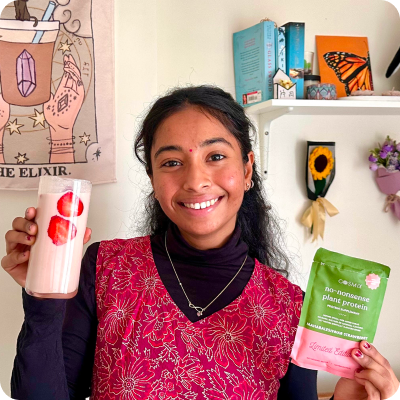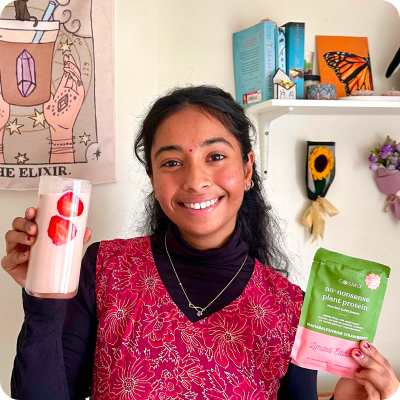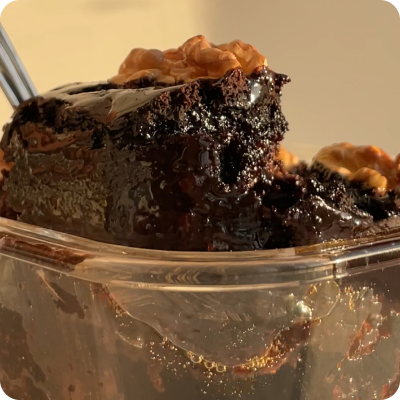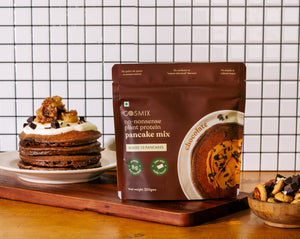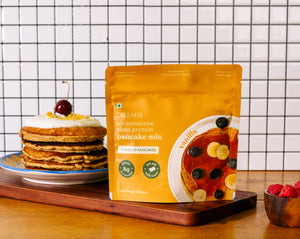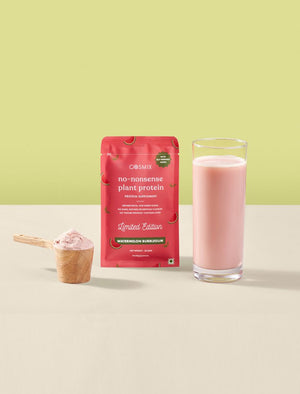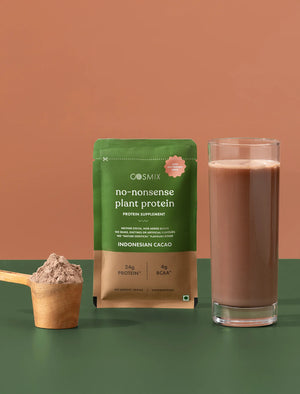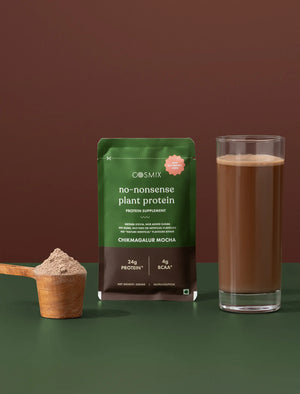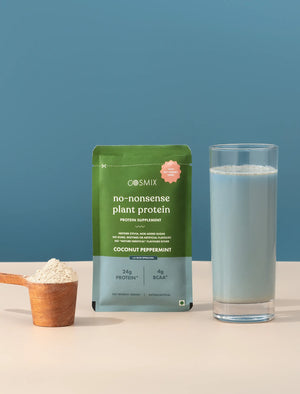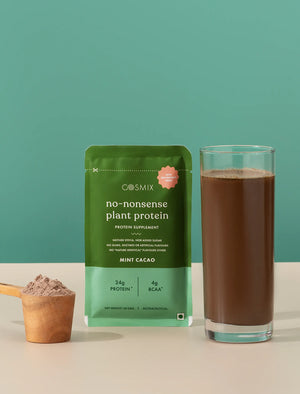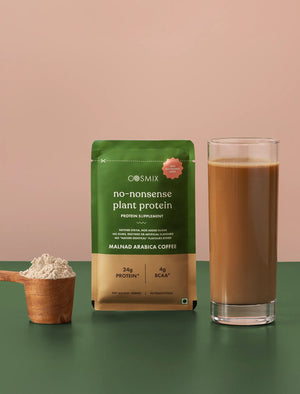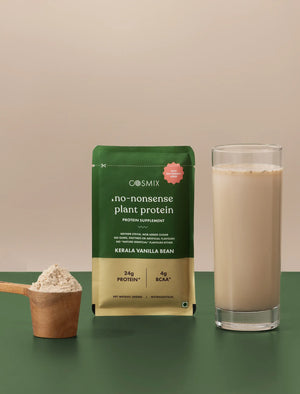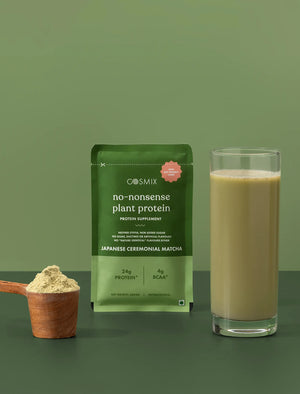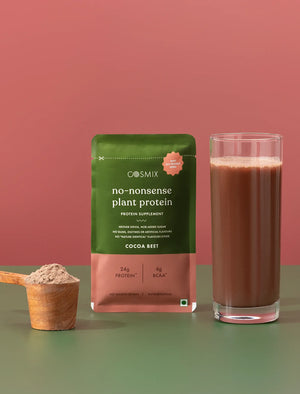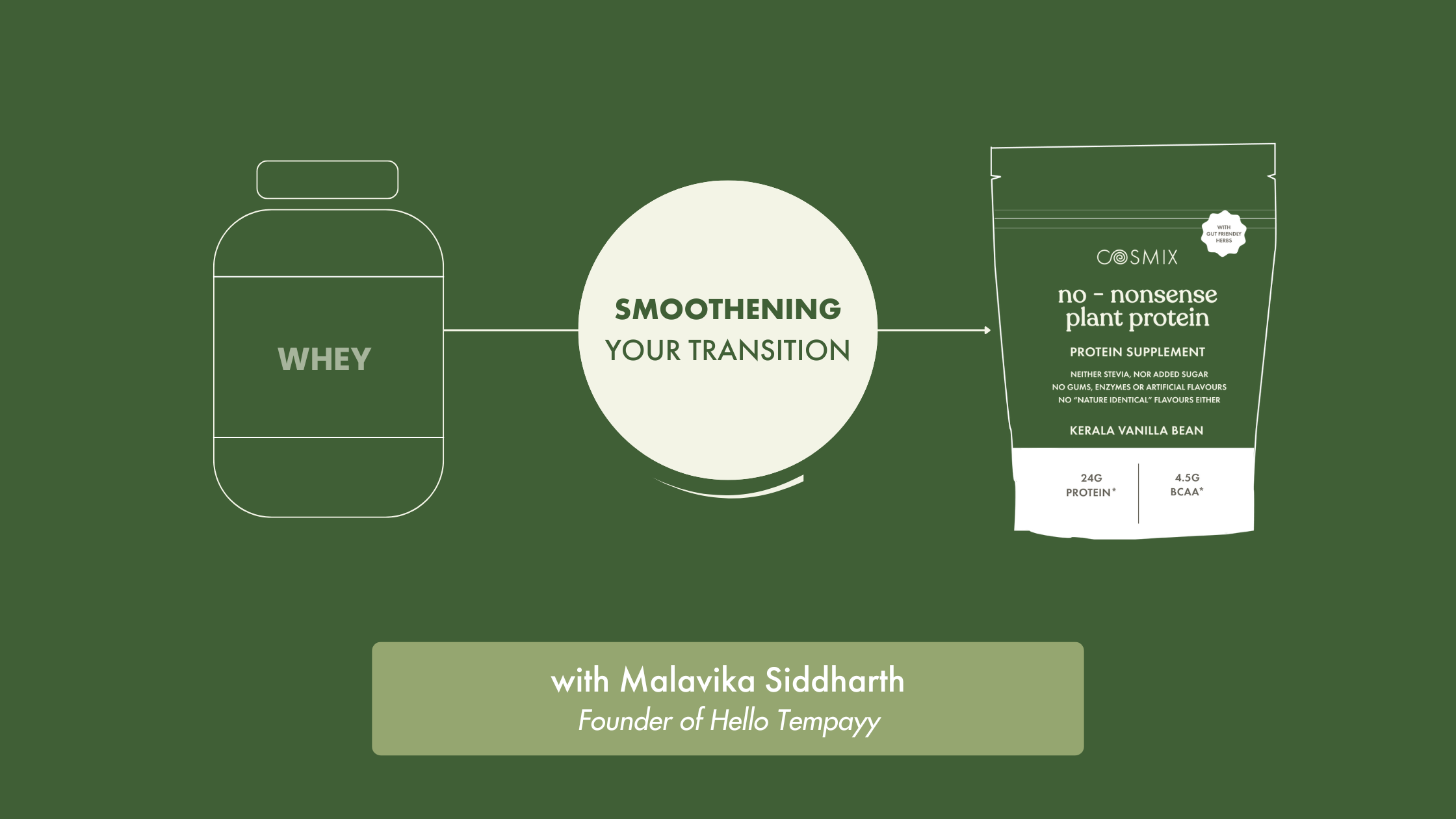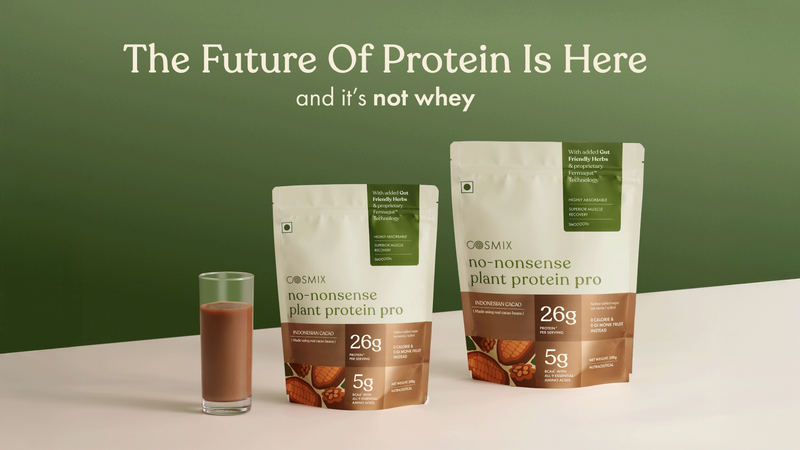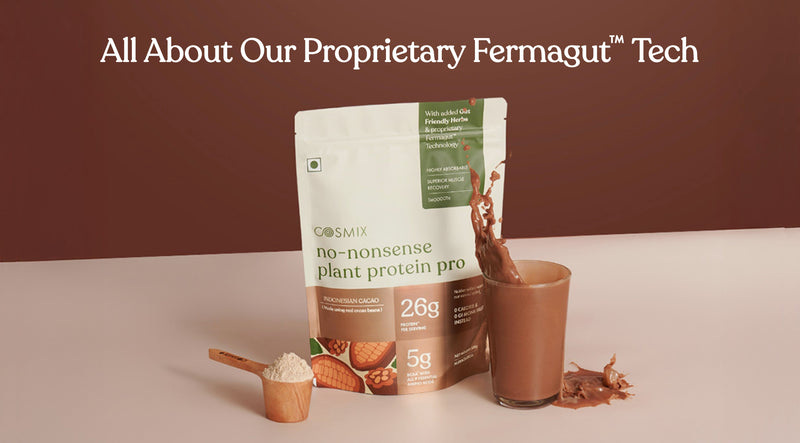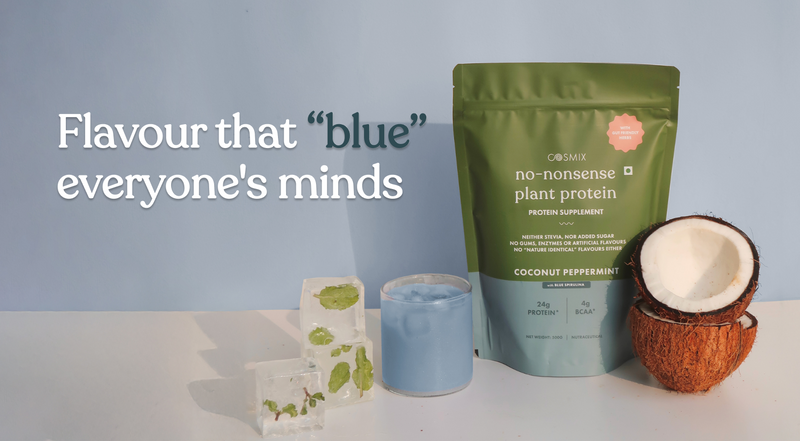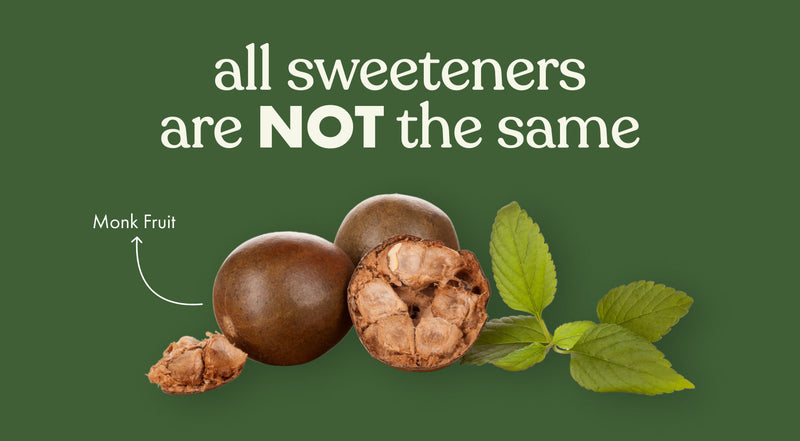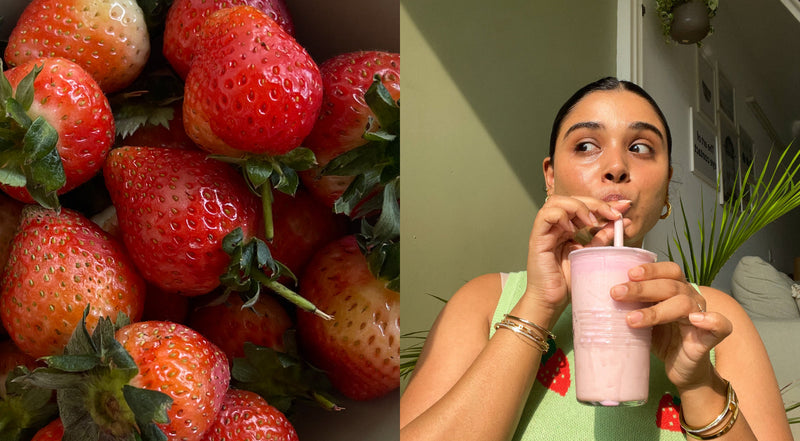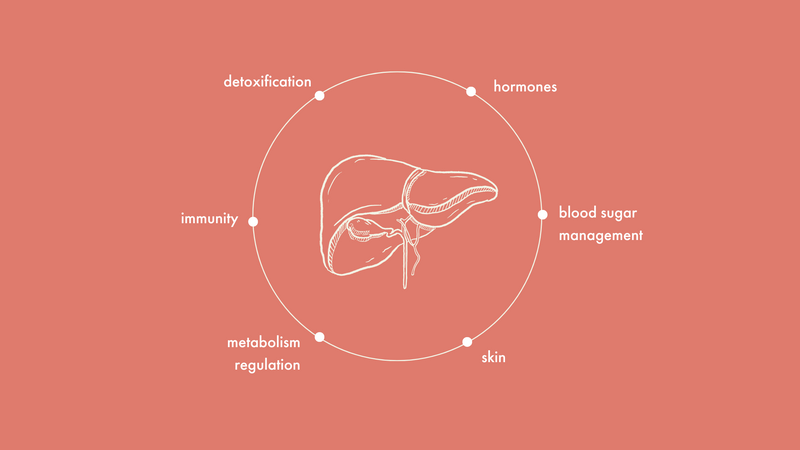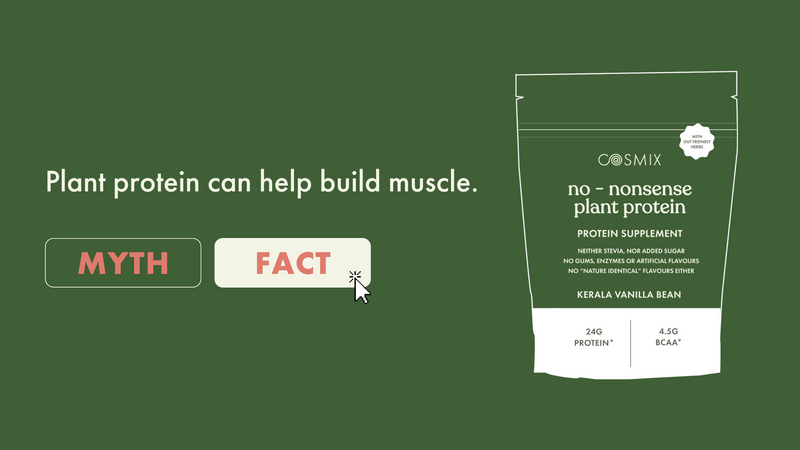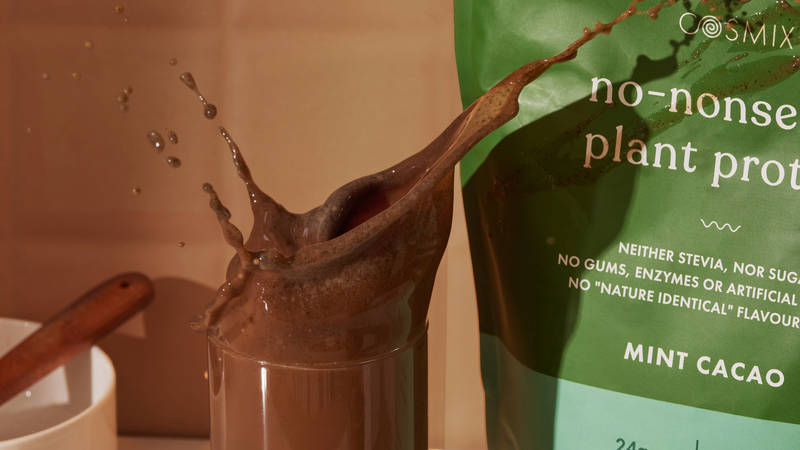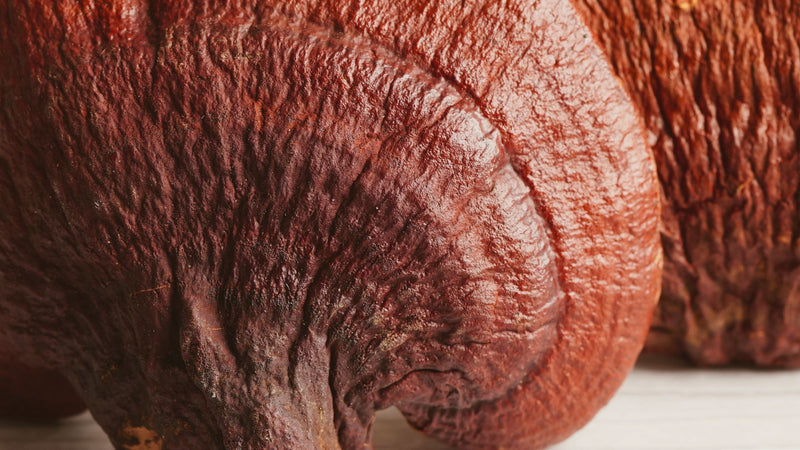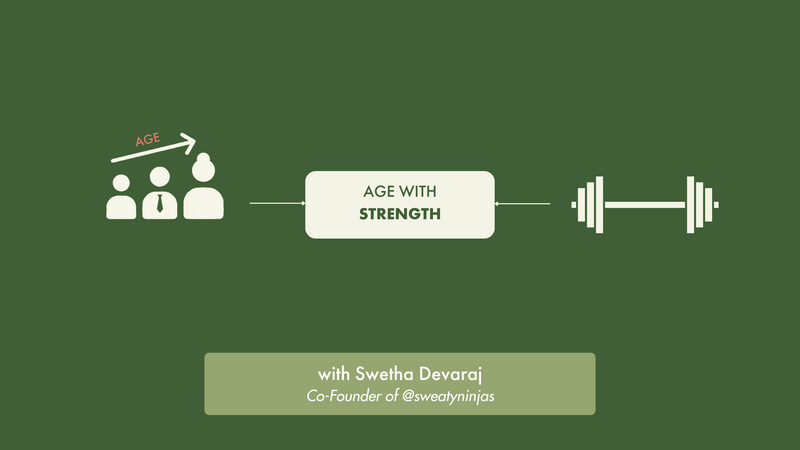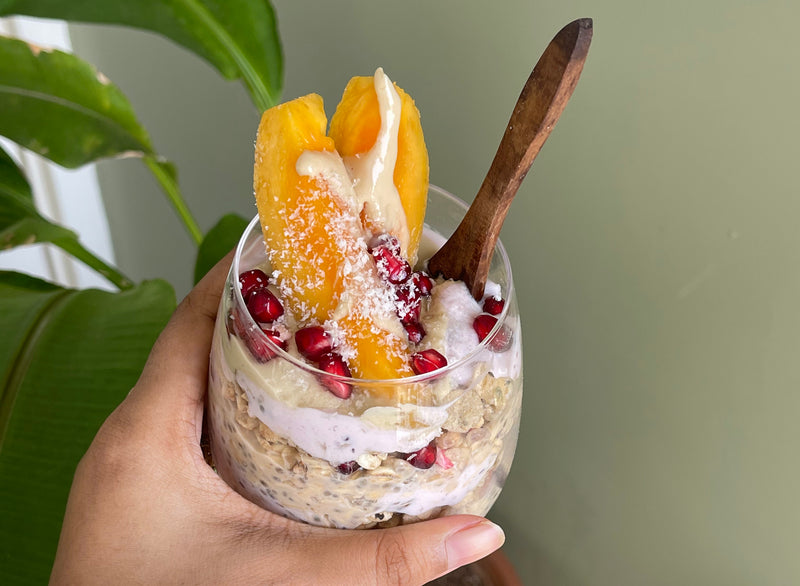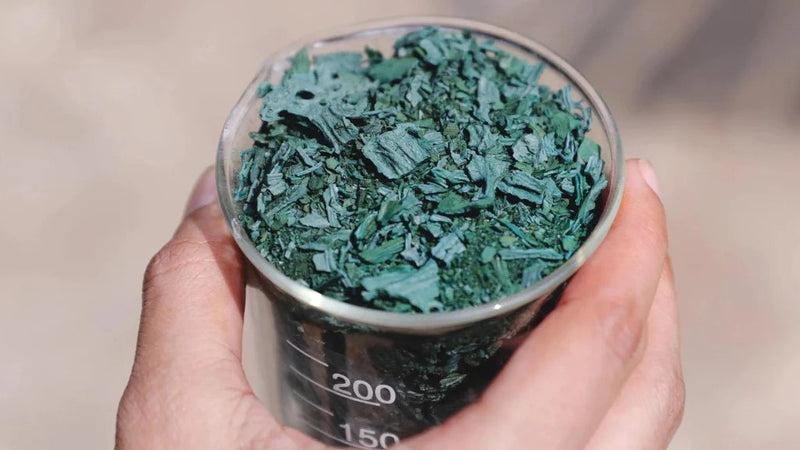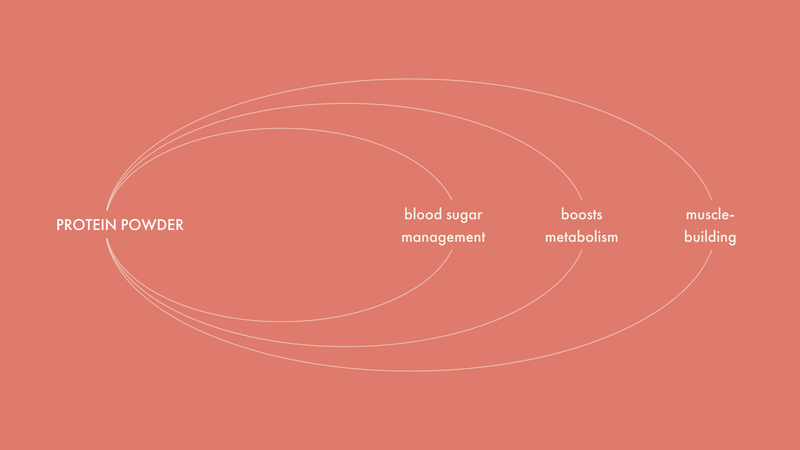Hi! If you’ve been engaging in those whey protein vs plant protein discussions in your head, and want a clear conclusion to this now, you're in the right place. Let us break this down for you.
Most of us consume protein to fuel our bodies and support our holistic well-being. For some people, whey protein is the way to go. But for others, there can exist three levels of issues - lactose sensitivity, allergies or intolerance. As the effects of lactose sensitivity and intolerance aren’t as severe as allergies, people may not even be aware of their problems with sweeteners, fillers or other ingredients present in whey protein.
But if you’re someone who’s aware of your issues, you might've been thinking about making the switch to plant protein. This transition isn’t the easiest thing in the world, but that’s why we’re here to help. We spoke to Malavika Siddharth, a certified nutritionist and the founder of Hello Tempayy, India’s leading Tempeh producer. Here’s how it went!
Cosmix: Hi Malavika! How’s it going?
Malavika: All good, can’t complain :)
C: That’s great to hear! We’re here today to answer the age-old question many of our readers have: Is plant protein better than whey? Thoughts?
M: Hmm, I don't think I can answer that in general terms, but I can speak about my own experience. With a personal struggle with GERD or Gastroesophageal reflux disease for years, my journey as a fitness and nutrition coach with whey protein wasn't the best. Despite not being sensitive to lactose in general, I quickly discovered whey protein did not suit me, mostly because of its issues surrounding slow digestion and its potential to aggravate hormonal issues in some women. Not all protein powders are made using the best quality ingredients.
But after making the switch, I started seeing that my body was better suited to digest plant-based protein than whey protein.
C: What were some of the issues you faced in the first couple of weeks after switching to plant protein?
M: Well if anyone who’s been a long-time user of whey tries switching to plant protein for the first time - the first thing they’ll notice is the difference in texture. I remember some of the hurdles my husband faced when he was trying to switch a couple of years ago.
C: Oh? Like what?
M: He’d keep coming to me and saying “This texture feels a little chalky, no?”
C: It very often does. But you know why that is?
M: Of course! This texture is a result of the rice and peas isolates that most plant-based proteins use to formulate their base. Also, the key difference between whey protein and plant protein is that since whey is made of milk, it dissolves much smoother in liquids than plant protein. This issue also exists because many plant-based protein powders, like you guys, try to keep the mix as clean as possible without any additives.
C: Awh, thank you for noticing Malavika! You’re absolutely right about that. But despite all the hurdles, you continue to use plant-based protein. Why is that?
M: Well, there are so many plant-based protein benefits that are important for me. Plant protein is generally easier to digest, making it a good choice for those with sensitivities or digestive issues, like me.
C: And as a result, it’s also a great way for lactose intolerant, or vegan people to ensure that they’re being respectful of their bodies as they hit their protein goals every day.
M: Yes, exactly! Another reason is that some plant protein powders avoid the usage of fillers, gums, or artificial sweeteners which can unknowingly be digestive triggers for some people.
C: Yes! We also avoid adding any extra gums or emulsifiers for the same reason.
M: I love that. I also really appreciate brands that are super transparent about their products. I made a reel about all the things you should look out for while picking the right protein for you. But for me to get all that I need, first brands need to be open about their mixes and not shy away from third-party testing to prove it to the world.
C: That’s very understandable. It’s only after you’re sure about the protein you’ve picked that can you start experimenting with how you should have it. We often get questions from our customers about this. Do you have any tips for them?
M: Oh I’m a BIG believer in the concept of eating my protein. I think the non-sipping element of foods helps the protein go down easier and makes the consumption so much more fun! You can try incorporating plant-based protein into meals, like blending it with yoghurt to make high-protein fruity popsicles, adding it to your morning smoothies, or making overnight porridge like I do.
C: Ah yes, we’ve seen that recipe! Eating your protein is a great concept that more people should be open towards.
M: Yeah! I always tell my clients to savour and engage with their protein, rather than chugging it down. The process of consuming protein doesn’t have to be something you punish yourself with. Being creative with your recipes goes a long way in helping you stay consistent with your protein intake!
C: That makes a lot of sense! You’ve given us a lot to think about Malavika, and brought us here to a great place for us to start! Do you have any last words you want to leave our readers with?
M: I think one thing everyone should remember is that delicious doesn't always equal healthy. While it may not perfectly mimic whey's taste, plant protein’s benefits and clean ingredients make it SUCH a worthwhile switch. The beginning may seem hard sometimes, but your health and body will thank you for it in the future!
C: That’s a solid response, we appreciate it!
There you have it, folks! You are now equipped with all the knowledge you need about plant-based protein benefits to dip your toes into our world. If you’re confused about where to start, which would be very understandable, we offer a pack of assorted single-serve sachets that you can try to get your taste buds accustomed to.
If you have any questions about plant protein, or protein in general, don’t hesitate to reach out to us @cosmixwellness on Instagram. We’re always available for you!
About Malavika (@mfitmlife on Instagram):
A certified nutritionist, entrepreneur, and mom on a mission to empower others. Malavika's journey – from stay-at-home mom to fitness influencer and founder of Hello Tempayy – is a testament to her dedication to health and wellness. Inspired by her daughter's autoimmune disorder, she created Hello Tempayy to provide a high-quality, plant-based protein source free from lactose, preservatives, and artificial colouring. Her purpose? To equip the world with all the information and knowledge they need to be able to take care of themselves.
